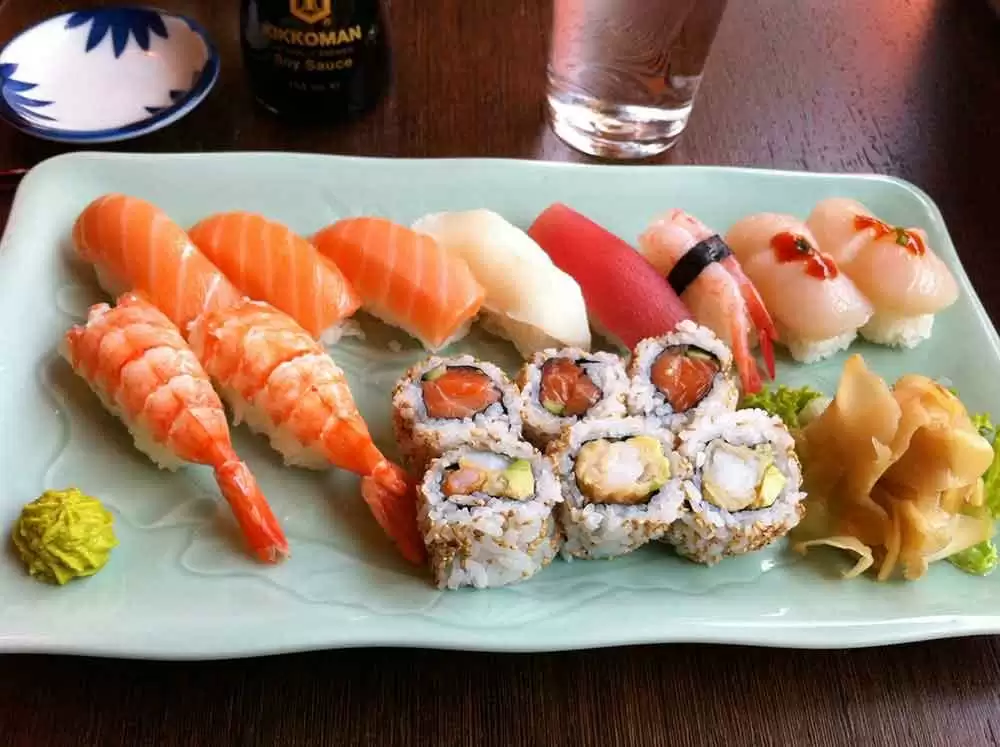
Celiac.com 11/15/2018 - Gluten-free products, marketed as such, were largely unknown 20 years ago, but the gluten-free industry is set to reach an estimated $2.34 billion in sales by 2019. That’s more than double figures for 2014. The growth has been exponential.
What sets gluten-free foods apart from other culinary trends or diet fads is that they address a legitimate health concern that affects millions of people around the world.
Celiac.com Sponsor (A12):
With the massive influx of gluten-free products, and the expansion of “gluten-free” restaurant options, it’s easy to forget that gluten exists in some obvious and not so obvious places that people with celiac disease need to avoid.
Here are 15 foods or food ingredients that many people wrongly assume are gluten-free:
Beer
Light or dark, lager, IPA or Stout, traditional beer is brewed with barley, and is not gluten-free. However, a number of major and micro breweries create tasty gluten-free alternatives. There are a number of tasty, award winning beers that are brewed from gluten-free ingredients and are fully gluten-free. There are also gluten-reduced beers. These beers are brewed like traditional beers and EU regulations allow for gluten-removed beer to be labeled as gluten-free. Plenty of people with celiac disease do fine drinking these beers, but many do not. Know your beer, know your body, and drink accordingly. Read more at Celiac.com's Oktoberfest Beer Guide! Gluten-free vs. Gluten-removed Beers.
Barbecue Sauce
Many barbecue sauces use artificial colors, flavorings or thickeners that may contain gluten, so it’s important to check labels, and even contact a manufacturer if you're not sure about something.
Couscous, Tabbouleh and Falafel
Couscous and bulgar are wheat and are used in many different Middle-eastern foods, and some people do not realize that they contain gluten. Bulgar or couscous are also used to make another popular Middle-eastern dish called tabbouleh (salad). Couscous or wheat flour are sometimes used to make falafel, so be sure to ask about the ingredients before eating.
Candy
Always be careful about candy. Many candies are safe and gluten-free, but many candies are not. Sometimes trusted products can change. Read labels, check websites, contact manufacturers as needed, and be careful! If you’re not sure, Celiac.com’s Annual Safe Gluten-Free Halloween Candy List is a good place to start.
Cookie Dough
This might seem obvious, but cookie dough, unless specifically gluten-free, almost always contains standard wheat flour and is not gluten-free.
Dried Spices
Some manufacturers actually use flour to keep their spices from clumping. Pay special attention to spice blends and mixes, including curry powders, which may contain wheat.
Gravies, Soups, Sauces and Mixes—Packaged, Canned, or Jarred
If you’ve ever made gravy from scratch, you might recall that it involves making a roux, a paste of butter and flour which thickens the gravy and gives it a nice sheen. Well, roux is also used as a thickening agent in many packaged, canned or jarred gravies, soups, sauces and mixes. Even some fresh soups may contain wheat or flour. Gazpacho, for example, can be made gluten-free, but most recipes call for a piece of bread soaked in sherry vinegar and blended into the soup. When it comes to gluten in soup, eater beware!
Hot Dogs & Sausages
The bun is an obvious source of gluten, but the dog itself can contain traces of wheat as well in the form of both filler and binder. So check labels, know the ingredients, and double-check when it comes to hot dogs and sausages.
Ice Cream
Although many ice creams are gluten-free, some may contain wheat in the form of added ingredients, like cookie dough, toppings or candy pieces. Double-check the ingredients to be safe.
Packaged Deli Meats, Marinated or Pre-Seasoned Meats & Vegetable Proteins
Packaged, marinated meat, fish, chicken, or other meats may contain gluten as a binder or hidden ingredient. Some vegetable-based proteins like Seitan contain gluten. Also, many deli meats claim to be gluten-free, but the same companies have released specific lines of gluten-free meats, raising the question of why they needed a separate product in the first place. Deli meats are controlled by the U.S. Department of Agriculture, not the Food and Drug Administration, which currently uses a different gluten-free standard.
Prescription Drugs, Vitamins and Supplements
Even though they are not technically foods, and they are meant to keep you healthy, prescription drugs, vitamins and supplements may contain gluten as binders, typically in the form of wheat starch. Ask you pharmacist for guidance, read labels closely, and make phone calls to companies or visit their Web sites to be sure.
Salad Dressings
Many salad dressings have updated their recipes to exclude any wheat or barley-derived additives, but some still contain gluten, especially the powdered mix kind.
Soy Sauce
Most soy sauces contain wheat and should be avoided. Be sure to find a gluten-free soy sauce.
Sushi
Although raw fish by itself is gluten-free, there are many ingredients in sushi rolls and other items that contain soy sauce and other sources of gluten. The seaweed wrappers in sushi may contain soy sauce, and the wasabi or fake crab may contain gluten. Teriyaki sauce is another source of gluten because it is made with soy sauce. See our How to Safely Order Sushi article for more info.
Teriyaki Sauce
Teriyaki is nearly always made with made with soy sauce, and most commercial brands contain wheat, so be careful.
Read more on:
Celiac.com UNSAFE Food List
Celiac.com SAFE Food List
Celiac.com's SAFE and UNSAFE Halloween Candy List










Recommended Comments
Create an account or sign in to comment
You need to be a member in order to leave a comment
Create an account
Sign up for a new account in our community. It's easy!
Register a new accountSign in
Already have an account? Sign in here.
Sign In Now